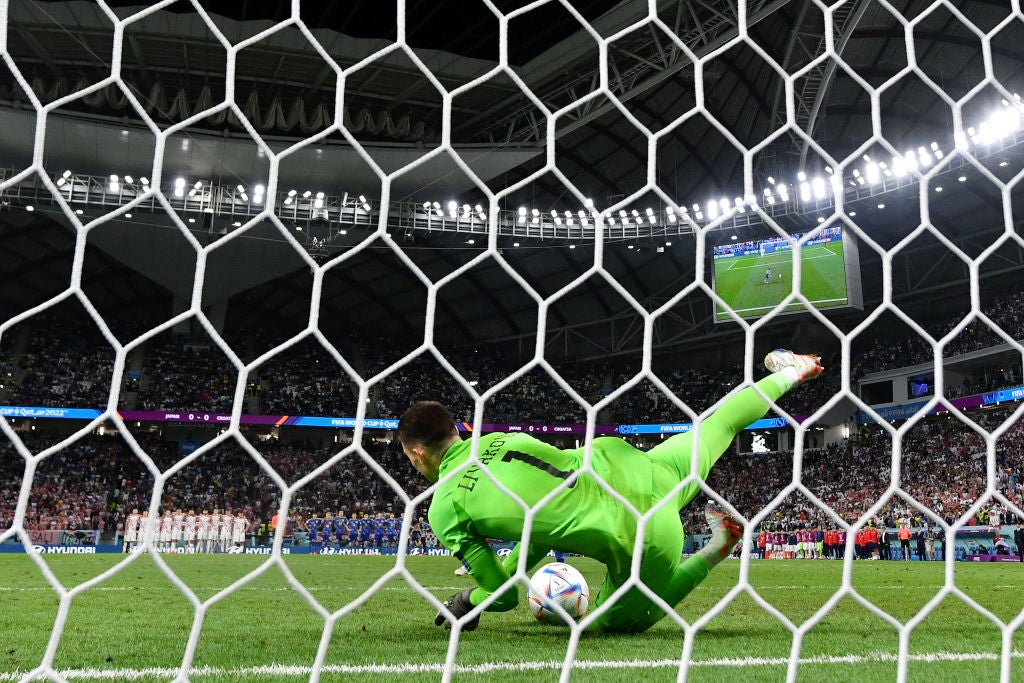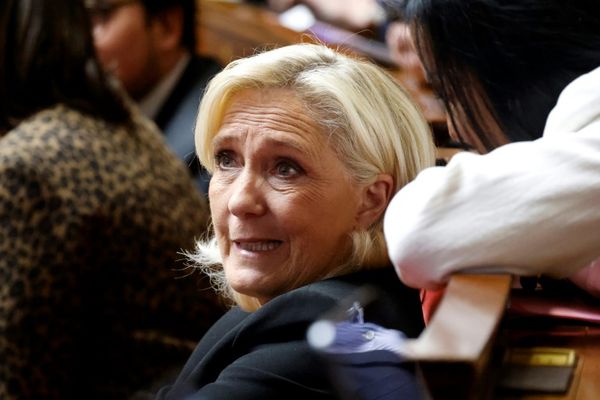
Half the World Cup 2022 round of 16 was over and done with before we knew it, little of it truly throwing up any possibility of a shock result or, indeed, much doubt over who would progress.
Sure, Australia came within a big Emi Martinez arm of forcing an equaliser, but it was wildly against the run of the game and after one massively deflected goal, and sure, both England and France were frustrated for a bit.
It didn’t last, and once the first goal went in, all uncertainty disappeared.
For all intents and purposes, each of the first four round of 16 clashes were over and done by at half-time, given none gave up their initial lead, and three were absolutely wrapped up by the hour mark.
Which made Monday’s first game, the 1-1 draw between Japan and Croatia, both an anomaly and a reminder: while both dominated in spells, and both looked capable of winning, this was a World Cup knockout game of real note, real possibility to reach a quarter-final and, as a result, a game neither were willing to throw everything at to the extent they might lose everything.
The reward on offer was historic on both sides.
Japan had never before reached the quarters. Even at this stage it was new territory for them - the first time they had made the last 16 in back to back appearances at the World Cup.
And for Croatia it was similar: twice they’ve been at least to the semis, but previously they had not followed up a last-four appearance by even reaching last eight next time out.
Progress and success is measured in all different ways, after all.
So is fear, and fear of missing out.
It was notable, for instance, that while Japan were flooding forward down the flanks during the 90 minutes at every opportunity, it was really just the once it happened in extra time. Tiredness can often be lined up as a reason for that in previous years, but all three forwards and one starting wing-back were subbed off before the 90.
As usual, extra time - just the fact it exists, the fact it’s there, present and in the front of the mind, irrevocably alters a team’s approach even if there’s no real need to.
In the final half-hour of regular time, Japan would not have dreamed to stop attacking, stop committing players forwad in transitions and counters, in pressing the halfway line and going direct from clearances in defence.
But as soon as extra time kicks off, the mentality switches. The amount a team is willing to risk decreases. The reward is exactly the same, yet the cost of overcommitting increases substantially the closer to the decisive final moment the match approaches.
Croatia were not immune from that change either, though theirs was more in terms of not putting as many bodies in the box, careful recycling in midfield rather than positioning themselves to attack from the second line and biding their time before crossing from the channels over trying to play through.
The drama that a penalty shootout provides - did provide again here - is relentless.

It’s also part of the reason why repeated shouts to bin off extra time will be raised once more now: the added 30 minutes provide few genuine talking points, while the spot-kicks can be a talking point per effort.
Whether or not those debates have merit, it all simply reinforces the expense of falling short in knockout football.
And with the World Cup being the biggest, most waited-for stage of all, that only magnifies every error made, every overstep taken and every costly decision to go big at the wrong moment.
As the quality gap between teams get tighter the longer we go on in Qatar, that risk of misstep will only be more pronounced, and so too will the reluctance to gamble. Those who do may get the greatest rewards of all, if they can only overcome the fear of getting it wrong.







